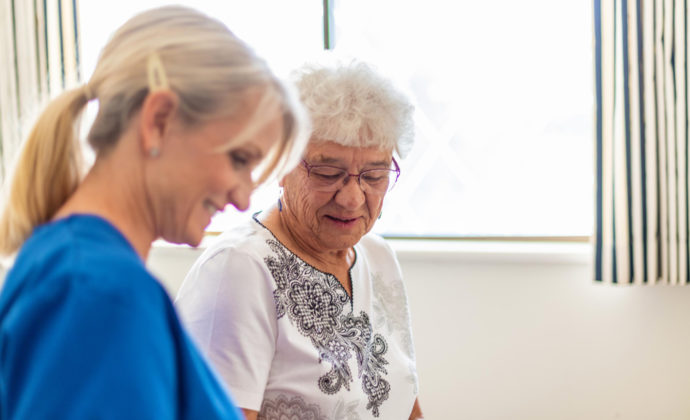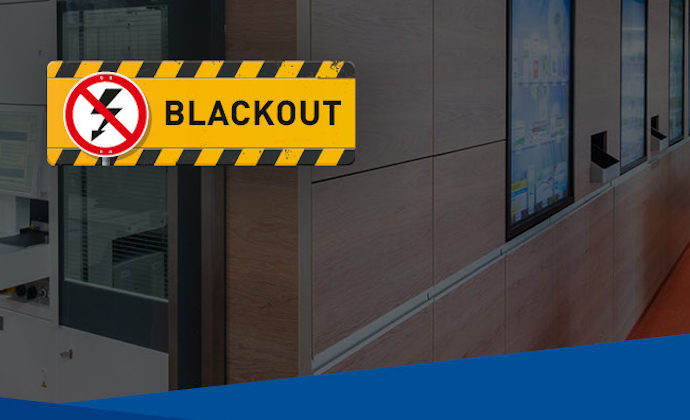
Home care medication – (not) a problem?
You would like to know more?
Contact us
A system chosen by caring relatives
Many patients and elderly people are cared for by relatives at home, from shopping and looking after the house to preparing and managing the necessary medications – often with five or more drugs to be taken at the same time. Most relatives are not trained health professionals and take on these tasks alongside family and work commitments.
The Center for Quality in Nursing (ZQP) has published interesting insights on the key challenges and potential solutions. Over 1,000 family carers in Germany were surveyed for this report.
Currently in Germany
People with relatives in need of regular care at home and who rely on more than one drug face numerous challenges. In addition to filling prescriptions at the pharmacy, they need to pass on instructions for use and information on side effects and organize the “provision” of medication, e.g. in a drug dispenser. Around three quarters of those surveyed routinely take on these tasks. Several people can be involved in the medication process, which can lead to misunderstandings and errors. 77% of those surveyed reported problems.
At the same time, the family carers not only find it particularly challenging informing the patient about the medication, but also checking whether it has been taken (correctly) – many patients will need constant reminders to take drugs on time. According to the respondents, medications were often or occasionally taken at the wrong time (36%), dosed incorrectly (19%) or could not be taken because they had expired or could not be found (22%). Dr. Ralf Suhr, CEO of the ZQP: “Taking responsibility for the correct medication intake including timing and dosage, is a serious matter. It becomes particularly difficult if the person in need of care has difficulty grasping or swallowing, keeps forgetting the medication or does not want to take it. This can lead to stress which in turn, can have a negative impact on the health of the carers.”
Preventing errors
Medication safety is critical to the well-being of people in need of care. “Taking a combination of different drugs over a long period makes it more likely that problems will occur. Amongst other things, there is a risk of stressful or damaging interactions. The prevention of medication errors is therefore vital – especially for the health system of a society in demographic change,” says the ZQP.
A potential solution for home care is the use of patient-specific medication pouches which help patients and carers ensure the right treatment is taken at the right time. Automatically assembled, clearly labeled bags identify and contain which tablets have to be taken according to day and time. They are easy to open and can also be presented individually. Medication errors can be significantly reduced and at the same time, it is a service which offers established pharmacies an opportunity to position themselves as health service providers, expand advisory skills and improve customer loyalty.
You might also be interested in
Workflow automation in a pouch packaging center
Interview with Jan Siebert, head of operations at Blistercare, about the advantages of complete workflow automation.
Blackout in the pharmacy: What to do when nothing works anymore?
First Covid-19, then war in Europe, and now, an energy crisis. For years we have been moving from one crisis to the next, which was previously unthinkable. But, even if the first two are still red-hot and far from forgotten, the next topic is already waiting to be considered: ENERGY.
Data driven optimization
Pouches help individuals for an easier daily life as patients can trust on the quality and reliability of their individual pouches. Pouch performance tracking from the canister to the inspection of the ready produced pouch can make this safer and more transparent.


